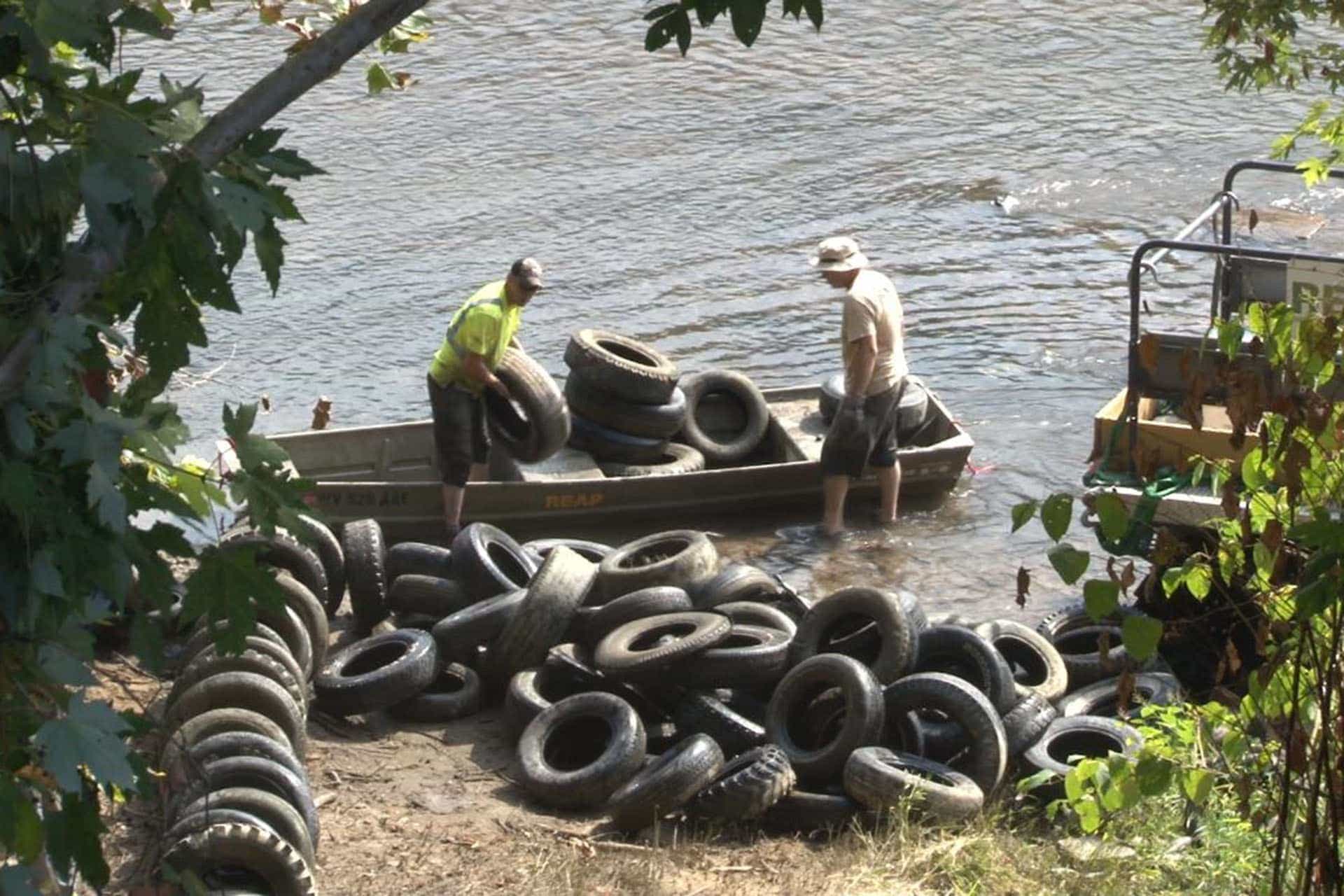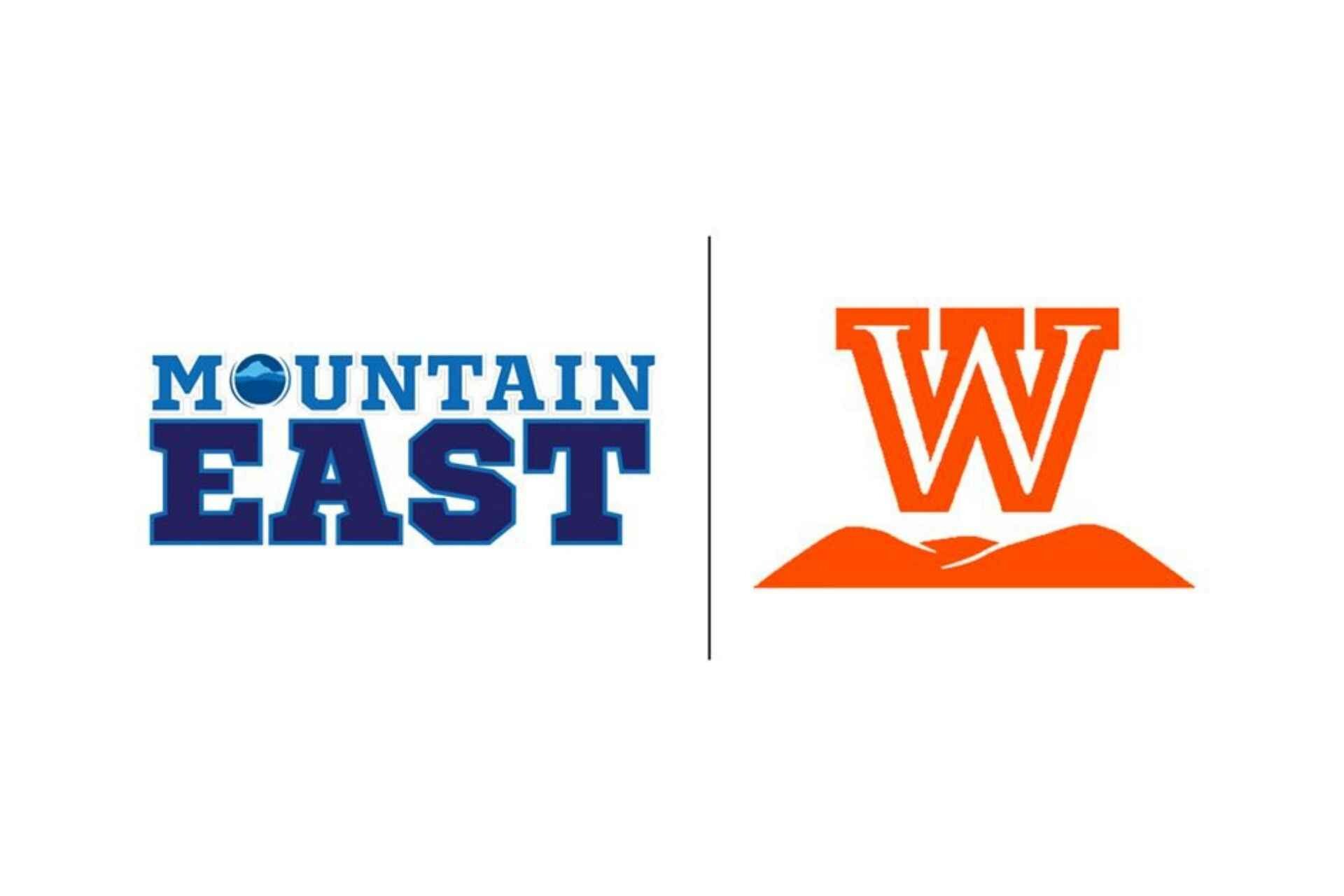WILLIAMSON, WV – The West Virginia Department of Environmental Protection (WVDEP) waged another successful battle against illegally dumped tires this week in Williamson.
Dubbed by locals as the “Tug River Tire Tug of War,” WVDEP staff, along with volunteers and employees from the City of Williamson and the Mingo County Commission, removed 2,340 tires from just a 100-yard stretch of the Tug Fork River over four days. The eight volunteers logged a total of 192 hours over the course of the cleanup, which started Thursday, Sept. 26 and wrapped up Wednesday.
“I would like to commend the people of Williamson and WVDEP staff for all their hard work,” WVDEP Cabinet Secretary Austin Caperton said. “This is truly an amazing achievement and a perfect example of what can be accomplished when citizens and government work together.”
Inspired by the tire cleanup efforts along the Elk and Little Coal rivers, the newly formed “Friends of the Tug Fork River” reached out to the WVDEP’s Rehabilitation Environmental Action Plan (REAP) for help in setting up their own cleanup.
Williamson was home to nearly 10,000 people during the 1930s and 1940s and tires had been rolled into the Tug Fork for decades. Residents speculate that the flood of 1977 accumulated all the tires in this specific section of the river – just behind the Williamson PK-8 school.
“It doesn’t look like tires are going into the river now, it looks like something that’s been done in the past,” said REAP’s Pollution Prevention and Open Dump (PPOD) program supervisor Greg Rote. “We’re just now getting to the point of being able to clean them up.”
No matter the source of the tires, WVDEP staff and volunteers still have their work cut out for them and plans for another cleanup next year are already underway. An estimated 10,000 tires still await removal and completely ridding the 159-mile river of tires could take years.
All the tires collected in the cleanup are being sent to a tire monofill near Summersville.
Citizens or groups interested in organizing their own tire cleanup are encouraged to reach out to REAP for assistance. Information can be found on REAP’s webpage, or by calling 304-926-0441.
















